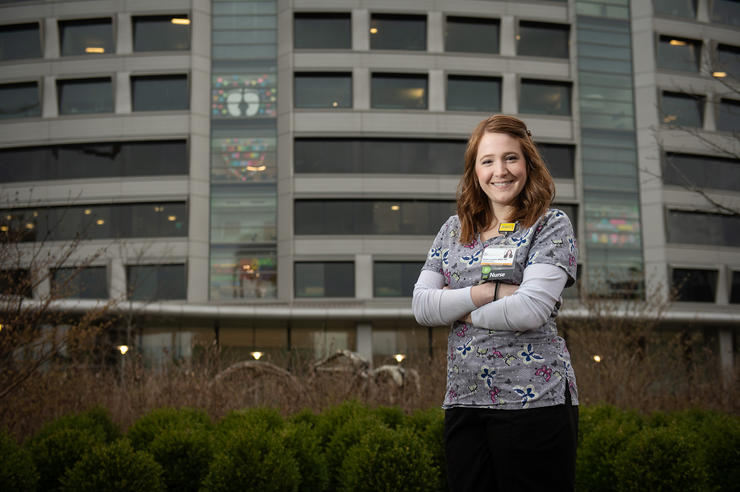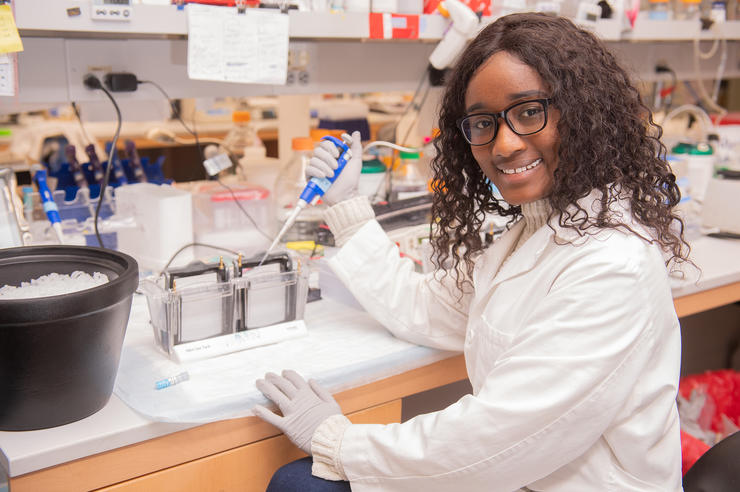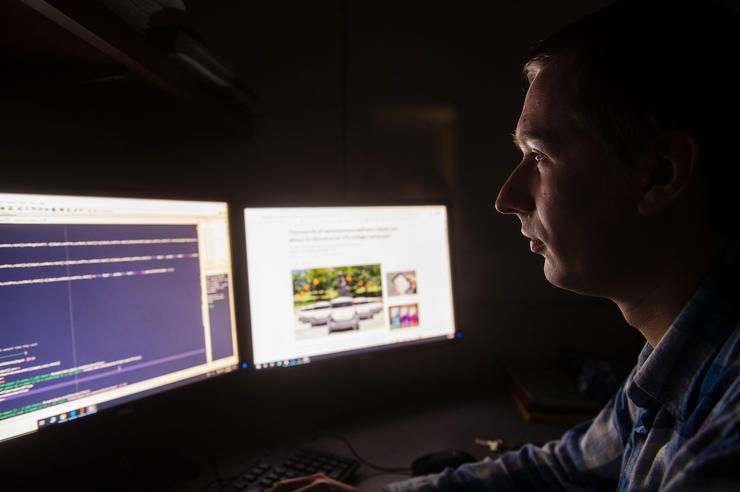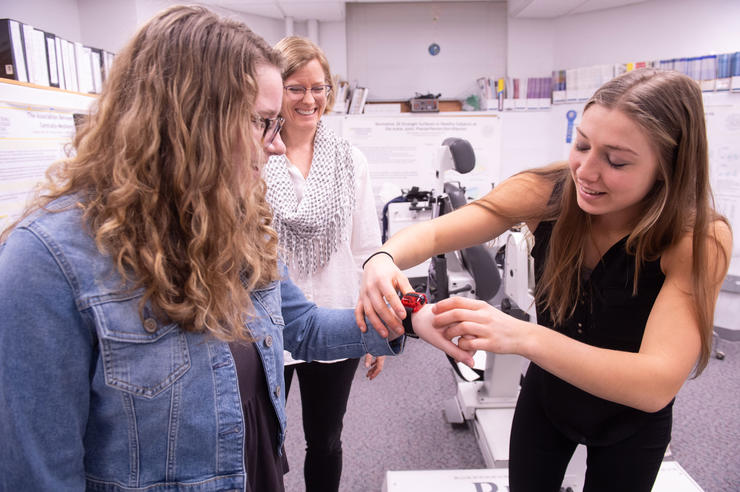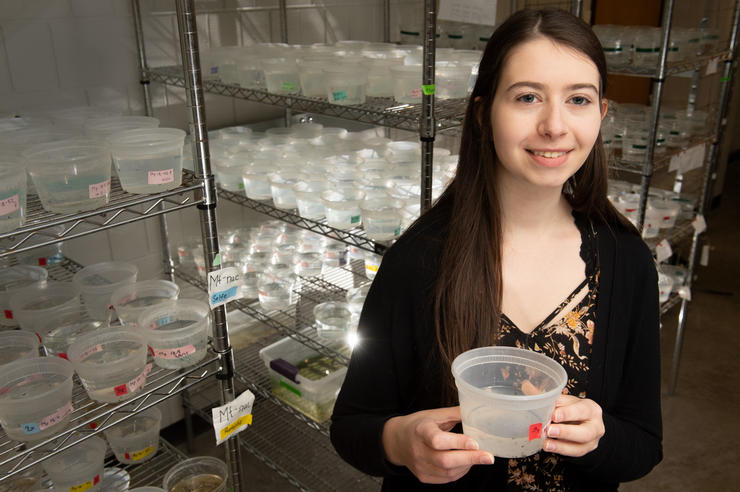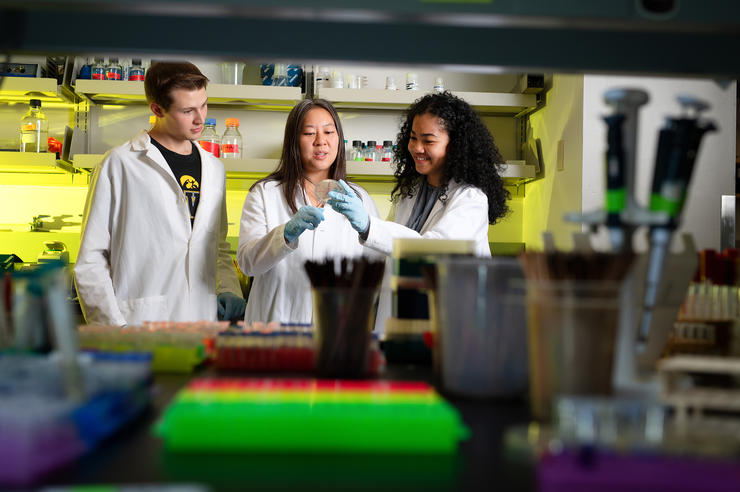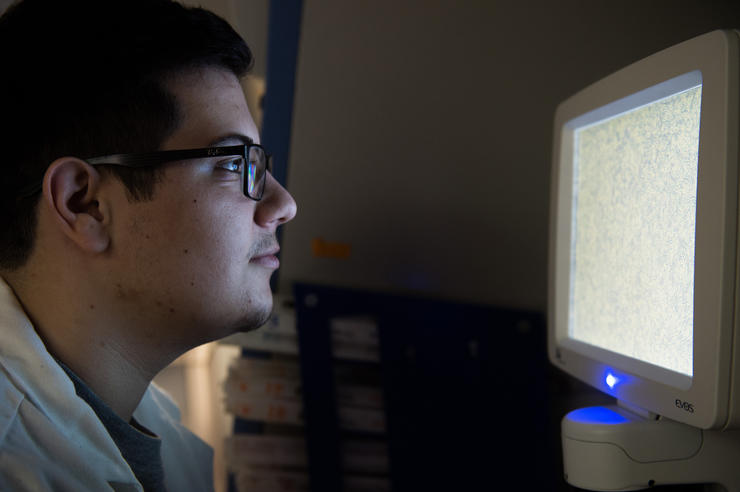Dentistry student dives into research challenges
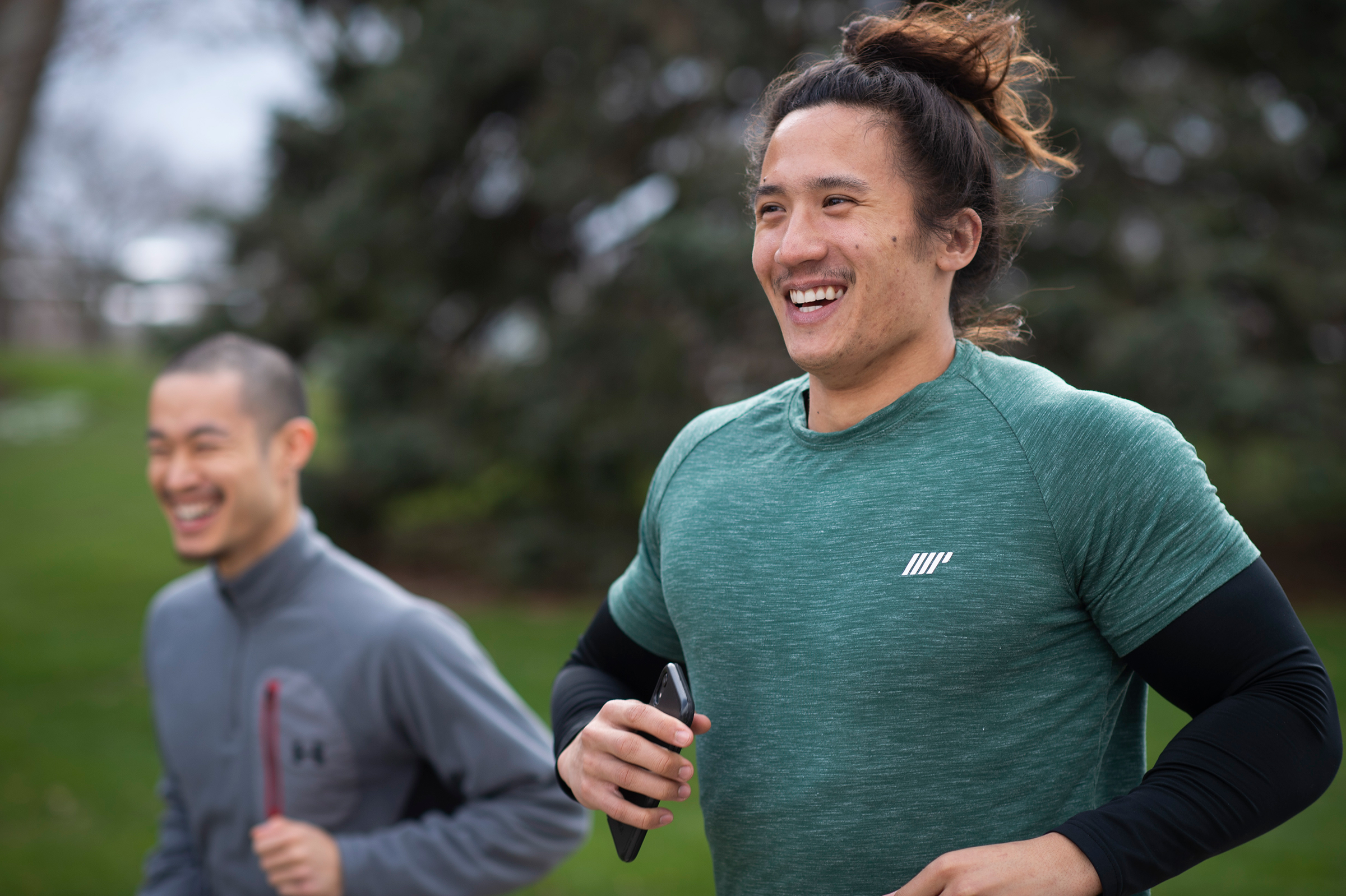
Jacob Lensing relishes challenges.
The former varsity collegiate swimmer has completed an Ironman triathlon and aims to compete in a 100-mile ultramarathon in the near future.
A first-year student in the College of Dentistry at the University of Iowa, Lensing approaches his research with similar fervor.
The summer before he enrolled at Iowa, Lensing dove into a research project comparing the efficacy of materials used to seal and protect teeth after a root canal. Lensing’s research, supervised by Erica Teixeira, associate professor and chair in the Department of Operative Dentistry, has led to presentations at two scientific meetings and a draft of an authored, peer-reviewed manuscript.
“You are constantly building on the knowledge that you already have and fitting in new pieces of information to help you get a better understanding of the subject area. In athletics, it’s kind of the same thing. It’s like, ‘OK, I’ve done this and I know I can do that—what about this thing? Can I do that? Can I get faster or can I go farther?’ It keeps life interesting.”
“What he accomplished is pretty significant for a first-year student who didn’t know what a root or a crown of a tooth or layers of the tooth were” before he enrolled in dentistry, Teixeira says.
“He’s very driven, he takes initiative,” Teixeira adds. “If he doesn’t know the answer to something, he’ll try to find it. He asks the right questions. He’s a learner.”
Lensing says he likes research because it presents some of the same challenges and fulfillment he encounters in his athletic pursuits.
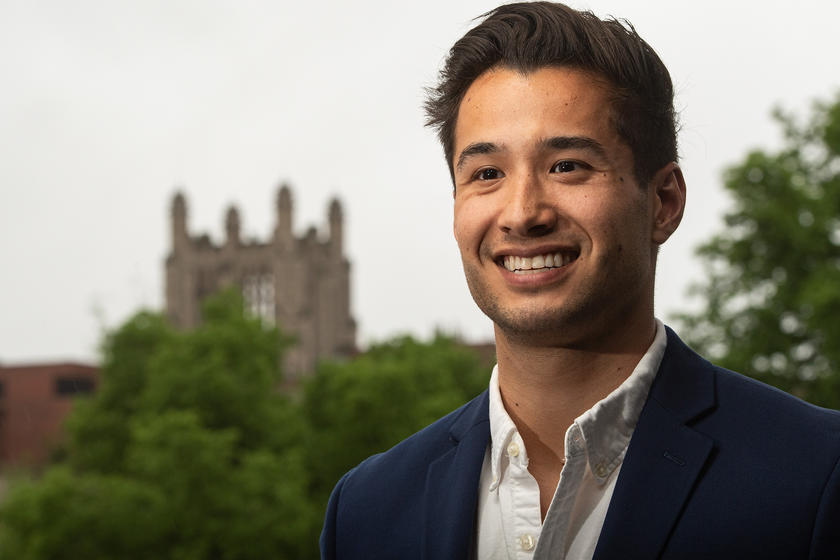
Jon Lensing always knew he wanted to pursue a career in medicine. But deep into his medical-school path, he focused on launching a business—one he and his co-founders designed to meet a need in the medical industry—and soon saw its numbers skyrocket due to COVID-19.
“You are constantly building on the knowledge that you already have and fitting in new pieces of information to help you get a better understanding of the subject area,” Lensing says. “In athletics, it’s kind of the same thing. It’s like, ‘OK, I’ve done this and I know I can do that—what about this thing? Can I do that? Can I get faster or can I go farther?’ It keeps life interesting.”
Lensing graduated from Calvin University in Michigan, a triple major in biology, biochemistry, and psychology. He became interested in dentistry after shadowing dentists in his hometown of Pella, Iowa, in high school and summers during his first two years in college.
He chose Iowa because advisers told him he could do research without having any prior experience.
“Here, they told us if you want to do research, all you have to do is write a proposal. And that was especially good for me as someone who wanted to enter into research in the dental field but didn’t have a lot of background in research,” Lensing says.
Lensing was put in touch with Teixeira after letting advisers in the college know he was interested in operative dentistry. Teixeira recalls her conversation with Lensing—and what happened next. “He didn’t know much about dentistry; he was just entering the field,” says Teixeira, who joined the College of Dentistry nearly six years ago. “But he went and looked at my publications, and picked on his own something that he wanted to do. He found a paper that I had authored 10 years ago on orifice barrier materials, and he said, ‘I want to do something in that area.’”
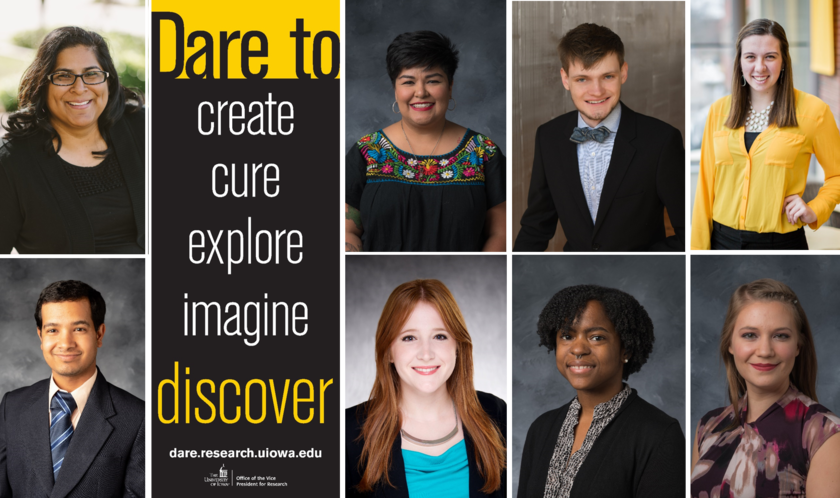
Jacob Lensing is one of 52 students featured in the University of Iowa’s Dare to Discover campaign highlighting researchers across campus.
“That’s very unusual for someone,” she continues. “So, I was like, ‘I know I’m not going to have any problems working with this person.’”
Indeed, she didn’t. Lensing took easily to his summer assignment evaluating the effectiveness of three biomaterials used to seal the inside of a tooth at the juncture between the root and the crown after a root canal operation. Within weeks, he had learned the required lab techniques; performed analyses; and tested the materials for their sealing qualities, the thickness needed to fill the opening, and their overall performance.
“I learned a lot about bonding mechanisms,” Lensing says. “I learned a lot about the different ways to test those bonding mechanisms and the seal around the tooth, how that affects the prognosis of the tooth, and the treatment.”
Teixeira asked Lensing to make a timeline when he started his summer project. Lensing thought he’d be done in a few weeks, and that was going to be that.
“But I learned that a lot of research is about trying and trying again. It’s going to take a lot longer than you think,” he says with a laugh.
Lensing has continued working with Teixeira, learning to use micro computed tomography (CT) scans in dental research, performing statistical co-analyses, and preparing a manuscript that he plans to submit for publication in a peer-reviewed journal.
“A lot of the people who have impacted me growing up have been teachers and professors, and I definitely would like to have that impact on somebody else,”
He would have presented his research in March at the International Association of Dental Research meeting in Washington D.C., had the conference not been affected by the Covid-19 pandemic.
“I’ve learned that presentations help you learn more about your subject area,” Lensing says. “Practicing it with friends, having them ask you questions about it helps you explain it and articulate it better.”
Lensing would like to combine his interests in teaching and research by becoming a dental professor himself.
“A lot of the people who have impacted me growing up have been teachers and professors, and I definitely would like to have that impact on somebody else,” he says.
